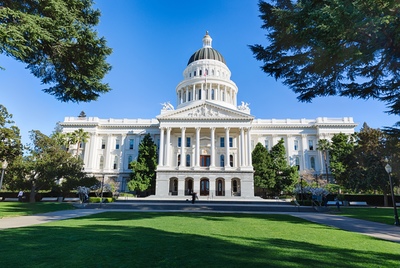
Compliance
How States Are Using AI for Compliance Enforcement in 2026
February 20, 2026 | Bradley Coffey
May 22, 2025 | Denisse Girón
-a3b152-1200px.jpeg)
Key Takeaways:
Many jurisdictions offer a runway that allows you to lobby without triggering registration and reporting requirements. For some jurisdictions, that is a set amount of hours that someone can lobby, and for other jurisdictions, it means that you will need to track your compensation until you meet a certain threshold set by the lobbying authority.
A Connecticut lobbyist must register if that individual receives or expends $3,000 or more in any calendar year on lobbying. On the surface, this seems to allow someone the ability to lobby in the state a considerable amount before submitting a registration with the Office of State Ethics. However, Connecticut snuck in a phrase that could mean that your runway is shorter than you think: in furtherance of lobbying.
Connecticut lobbyists need to beware the breadth of work that “in furtherance of lobbying” covers, which is unlike any other state. There is no formal definition of “in furtherance of lobbying” in the law, which means that lobbyists need to rely on limited guidance or a few advisory opinions issued over the years by the State, and cross their fingers they have all their documentation in order in case of an audit.
Connecticut's guidance and advisory opinions generally advise that any expense incurred that is connected with influencing legislative or administrative action qualifies as reportable. Anyone involved in the political space knows that could include a wide range of expenses.
More typical expenses are included in this category, such as printing, postage and telephone charges, and non-lobbying consulting fees. That includes hiring firms like MultiState as part of your organization’s lobbying compliance program. Luckily for MultiState clients, we are sure to include those fees on the filed reports.
But spending time learning about the lobbying and ethics laws on your own, or responding to a state-mandated audit? Advisory Opinion No. 1996-11 says that lobbyists will need to include that time as a lobbying expense. The Commission’s regulations give just a few examples of what may qualify, such as research time, time spent in actually communicating, “and any other time consumed in furtherance of lobbying.”
Advisory Opinion No. 1993-14 goes further to include building goodwill between lobbyists and public officials. That is particularly important for those who don’t see themselves as traditional lobbyists since they are not targeting a piece of legislation; all of those relationship-building activities or introduction meetings could trigger a lobbyist registration.
The bottom line is that someone can meet the registration threshold quicker than they may expect. Although the $3,000 may seem higher compared to other neighboring states, Connecticut publicly says that it favors disclosure, so lobbyists are likely tracking more often than those counterparts.
Unlike the clearer runways offered in other states, Connecticut's broad definition requires a proactive approach to tracking even seemingly indirect expenses and time. Staying informed and diligently documenting all potentially related activities will be the key to remaining compliant with Connecticut's unique lobbying regulations.
Keeping up with rules, deadlines, and often confusing requirements is a daunting prospect for teams of all sizes. Let us manage your federal, state, and local registration and reporting responsibilities, or manage your Campaign Finance program. Read more about our Compliance Services here, or get in touch here.

February 20, 2026 | Bradley Coffey
-328a36-400px.jpg)
February 20, 2026 | Kelly Cox
-8748f6-400px.jpg)
February 19, 2026 | Izzy Aaron